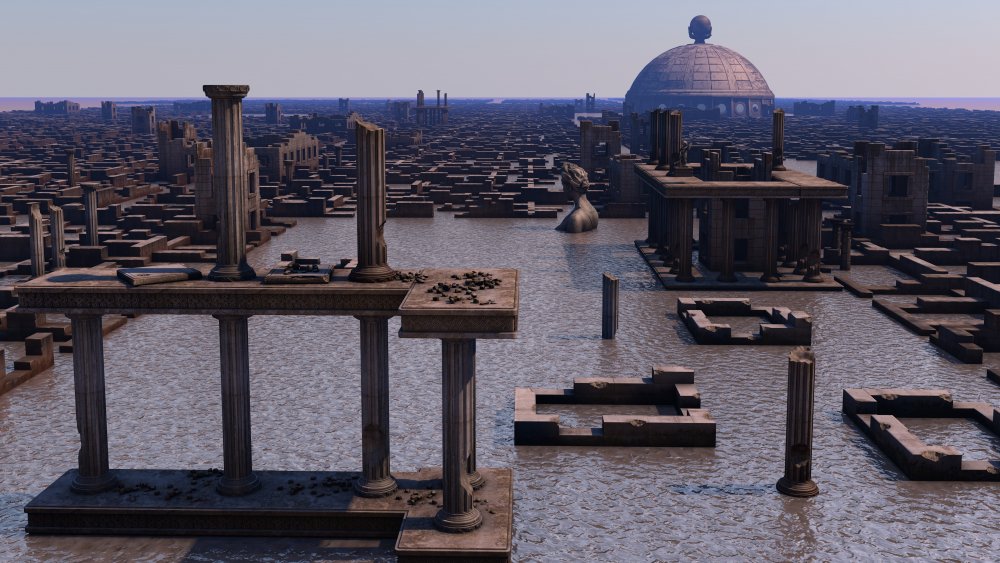Atlantis Might Actually Have Existed. Here's Why
Atlantis is one of those words, those places, that's truly a figure to conjure with, a mix of ancient legend and steam-punk possibilities, a sort of tabula rasa for whatever you'd hope humanity to be. The stories get told and reshaped, depending on the times in which they're rediscovered and reshaped — Donovan sold a lot of copies of "Atlantis" back in 1969 with his special take on the beautiful, and now lost, island civilization. (It was quite groovy. Also repetitive.)
We have the Ancient Greek philosopher (he wasn't ancient; to be clear, he was a philosopher of Ancient Greece) Plato to thank for Atlantis. Back around the Fourth Century BCE, Plato wrote one of his dialogues which included a long discourse about the really true story of Atlantis which, as the Ancient History Encyclopedia quotes, fell victim to "excessively violent earthquakes and floods" and sank beneath the waves, as sometimes happens to islands.
We have Plato to thank for the story of Atlantis
For some time now, scholars have suggested that the really really true part of the Atlantis story didn't have so much to do with an advanced civilization as it did with Plato's use of allegory. That isn't to say there isn't a smidgen of truth to be found in the form of an historical event: the sinking of the Greek island of Santorini around 1600 BCE, says History. That hasn't stopped plenty of people nominating other spots on the planet. Off the Atlantic coast of Spain is popular. Another nomination was a rock formation in the Bahamas.
And, as sometimes happens, Atlantis has spawned its own cottage industry of makey-up. Sir Francis Bacon wrote an entire utopian novel, The New Atlantis, in 1627 with, of course, a politically and scientifically advanced culture. Edgar Cayce, a psychic operating in the early 20th Century, was fond of giving "readings" for people that linked them via past lives with the ancient lost civilization of Atlantis. He also did faith healings, some of them long-distance, says Encyclopedia Britannica. He predicted the whole shebang would be discovered (or re-discovered, or recovered, or something) in 1969, says Livescience. That would have been only 12 years after the Roswell UFO incident. Coincidence?

